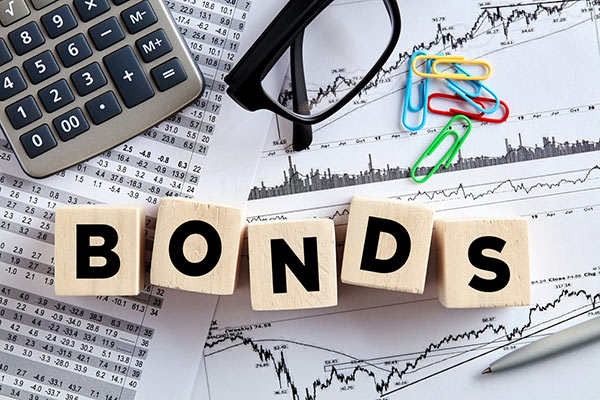Bonds expected to be the best-performing investment in 2024
Fixed income could be boosted by lower inflation and interest rate cuts, writes Sam Benstead.
15th November 2023 10:39
by Sam Benstead from interactive investor

Professional investors expect bonds to be the best-performing asset class in 2024, with high yields and rising bond prices set to reward investors.
Bank of America’s latest fund manager survey found that investors moved to their biggest fixed income overweight since March 2009.
In total, 94% of investors surveyed said that bonds, stocks, and commodities would outperform cash next year. The survey took place between 3 November and 9 November and covered investors with around $554 billion (£443 billion) in assets.
- Invest with ii: Investing in Bonds | Free Regular Investing | Open a SIPP
The reason for the optimism is that central banks have likely stopped increasing interest rates, and inflation is showing signs of returning to normal levels.
US inflation figures this week showed that prices in the world’s largest economy grew just 3.2% on an annualised basis in October, lower than the 3.3% expected.
- Bond Watch: has the big bond rally finally begun?
- Bond Watch: have we hit peak rates? And new bond offers 11.5%
- Bank of England holds rates at 5.25% after inflation surprise
UK inflation figures also beat expectations, with prices rising 4.6% in the year to October 2023, lower than the 4.8% expected.
A slowdown in inflation in the US and UK has prompted strong stock and bond market rallies, with US shares rising 2% this week, in dollar terms, and UK shares increasing 2% as well.
US and UK 10-year bonds yield 4.45% and 4.15%, and with lower interest rates expected to boost bond prices, they are set to deliver strong total returns for investors, with riskier bonds offering even greater return potential.
Bonds should also rally in the event of economic growth shocks, as investors will be drawn to the stable income on offer, particularly from the safest bonds like those issued by the UK and US governments.
- The highest-yielding money market funds to park your cash in
- Shares vs bonds: which offers the best opportunity for income seekers?
- The Income Investor: don’t underestimate the value of dividend growth
Now, Bank of America finds that 76% of respondents believe the US is done increasing interest rates, and around three-fifths expected bond yields to fall, which is a result of prices rising.
Reflecting investor optimism, investor cash balances fell to 4.7% in October compared with 5.3% in September, according to Bank of America.
This is a “neutral” signal, the bank says, whereas any cash level above 5% is considered a contrarian indicator and a good time to buy shares. Cash below 4% is considered a “sell” signal by Bank of America.
Worries about inflation and central bank mistakes are rapidly diminishing, but geopolitical risk is climbing the agenda due to war in the Middle East.
The survey found that the most-crowded trades in October were long Big Tech, short China stocks 22%, and long US government bonds. It notes that contrarian trades include owning cash, US dollars and commodities.
These articles are provided for information purposes only. Occasionally, an opinion about whether to buy or sell a specific investment may be provided by third parties. The content is not intended to be a personal recommendation to buy or sell any financial instrument or product, or to adopt any investment strategy as it is not provided based on an assessment of your investing knowledge and experience, your financial situation or your investment objectives. The value of your investments, and the income derived from them, may go down as well as up. You may not get back all the money that you invest. The investments referred to in this article may not be suitable for all investors, and if in doubt, an investor should seek advice from a qualified investment adviser.
Full performance can be found on the company or index summary page on the interactive investor website. Simply click on the company's or index name highlighted in the article.